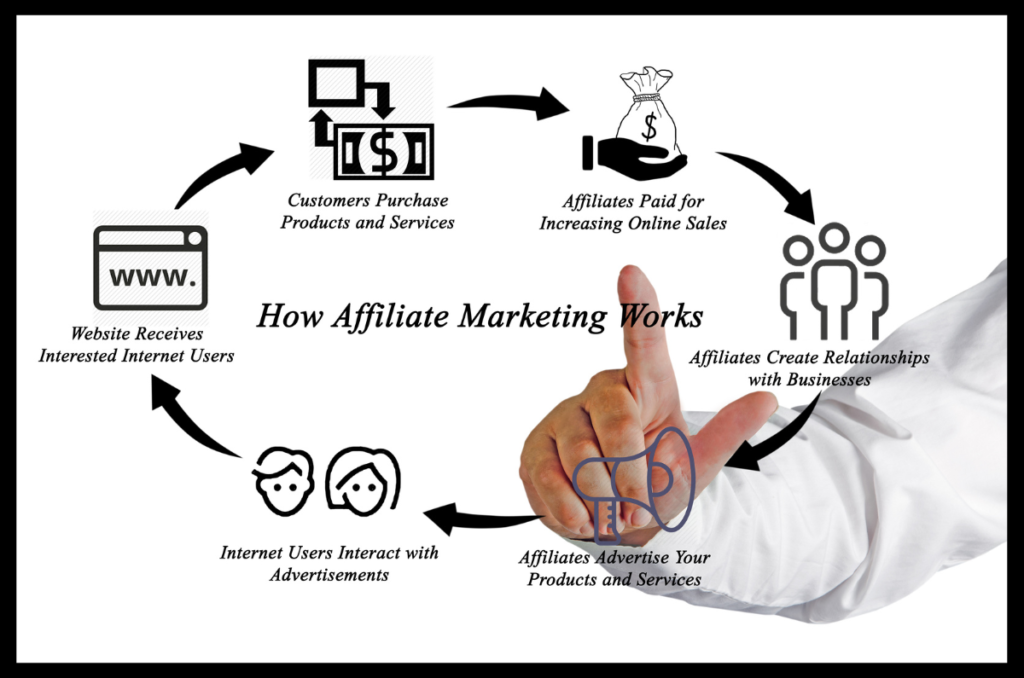

Introduction:
Running a successful affiliate program can be a game-changer for your business. When executed effectively, it has the potential to drive substantial net new revenue growth, deliver a solid return on investment (ROI), and provide valuable strategic insights into your marketing efforts. However, several significant obstacles can hinder the success of your affiliate program. Let’s explore these challenges and discuss how to overcome them.
Net New Revenue Growth:
One of the primary objectives of an affiliate program is to generate new net revenue. However, achieving consistent growth can be challenging. It requires a well-defined strategy, continuous optimization, and effective recruitment of high-performing affiliates. To overcome this obstacle, focus on expanding your affiliate network, nurturing relationships with top affiliates, and offering compelling incentives that align with their goals.
Return on Investment (ROI):
Measuring the ROI of your affiliate program is crucial for evaluating its success. However, tracking and attributing conversions accurately can be complex. Investing in robust tracking and reporting tools, implementing clear attribution models, and conducting regular data analysis will help you measure and optimize your ROI effectively.
Strategic Insights:
Affiliate marketing provides valuable strategic insights into consumer behavior, market trends, and campaign performance. However, extracting meaningful insights from the vast amount of data can be overwhelming. Employ data analytics tools to gain actionable insights, segment your audience, and identify growth opportunities. This will enable you to make informed decisions and optimize your marketing strategies accordingly.

Attribution:
Attributing conversions accurately is a common challenge in affiliate marketing. Determining which marketing channels or affiliates should receive credit for a sale can be tricky. Employing multi-touch attribution models, utilizing unique tracking codes, and leveraging advanced analytics platforms can help you attribute conversions more accurately and fairly, ensuring that affiliates receive proper credit for their contributions.
Service Quality:
The success of your affiliate program depends on the satisfaction and engagement of your affiliates. Providing exceptional service and support is crucial for fostering strong relationships with your affiliates. Offer prompt communication, regular performance feedback, and resources that help them succeed. By prioritizing service quality, you can build trust, loyalty, and long-term partnerships with your affiliates.
Publisher Diversity:
Relying heavily on a few key affiliates can create vulnerability in your program. A lack of publisher diversity limits your reach and increases the risk of relying on a single source for traffic and conversions. Diversify your affiliate base by actively recruiting affiliates from different niches, industries, and geographies. This will help you tap into new markets, expand your audience, and mitigate risks associated with relying on a few affiliates.
Integrating Different Analytics Sources:
Integrating data from multiple analytics sources can be a technical challenge. Consolidating data from various platforms, such as affiliate networks, Google Analytics, and CRM systems, is essential for gaining a comprehensive view of your affiliate program’s performance. Implement data integration solutions and ensure data accuracy and consistency across platforms to streamline reporting and analysis.
Overcoming these obstacles requires dedication, strategic thinking, and a willingness to adapt. Continuously evaluate and optimize your affiliate program, invest in the right tools and technologies, and foster strong relationships with your affiliates. By addressing these challenges head-on, you can unlock the full potential of your affiliate program and achieve sustainable growth and success.

Compliance and Fraud Prevention:
Maintaining a secure and compliant affiliate program is crucial to its long-term success. Fraudulent activities, such as cookie stuffing, fake referrals, or spammy practices, can damage your brand reputation and compromise program effectiveness. Implement robust fraud prevention measures, regularly monitor affiliate activities, and enforce strict compliance guidelines to ensure a clean and trustworthy program environment.
Adapting to Industry Changes:
The affiliate marketing landscape is constantly evolving. New technologies, algorithm updates, and industry trends can significantly impact the effectiveness of your program. Stay informed about the latest developments in the affiliate marketing space, attend industry events, and network with other professionals to keep your program up-to-date. Adaptability is key to staying ahead of the curve and maintaining a competitive edge.
Communication and Collaboration:
Effective communication and collaboration with your affiliates are essential for program success. Clear communication channels, regular updates, and providing marketing assets and resources can enhance the performance of your affiliates. Foster a collaborative environment by encouraging feedback, addressing concerns promptly, and fostering a sense of community among your affiliates. Strong relationships and open lines of communication will contribute to the overall success of your program.
Overcoming these obstacles requires a proactive approach, continuous monitoring, and a willingness to adapt to the ever-changing landscape of affiliate marketing. By addressing these challenges head-on and implementing effective strategies, you can maximize the potential of your affiliate program and drive sustainable growth. Remember, success in affiliate marketing is not solely dependent on one factor but rather a combination of strategic planning, continuous optimization, and nurturing strong relationships with your affiliates.

Competitive Landscape:
The affiliate marketing space is highly competitive, with numerous businesses vying for the attention of top-performing affiliates. Standing out from the crowd and attracting quality affiliates can be challenging. Differentiate your program by offering unique commission structures, exclusive promotions, and innovative marketing strategies. Showcase the value and benefits of partnering with your program to attract and retain top affiliates.
Technological Infrastructure:
A robust and reliable technology infrastructure is vital for the smooth operation of your affiliate program. Outdated or inefficient tracking systems, slow-loading landing pages, or technical glitches can negatively impact the user experience and deter potential customers. Invest in advanced tracking platforms, optimize your website for speed and performance, and ensure seamless integration between your affiliate program and other marketing tools.
Education and Training:
Affiliate marketing requires knowledge and skills in various areas, including digital marketing, analytics, and relationship management. Insufficient education and training can hinder the success of your program. Provide comprehensive training resources, webinars, and workshops to empower your affiliates with the necessary knowledge and skills to succeed. The better equipped your affiliates are, the more effective they will be in driving conversions and revenue.
Adapting to Consumer Behavior:
Consumer behavior is constantly evolving, and it’s crucial to align your affiliate program with changing preferences and trends. Keep a pulse on your target audience, their needs, and their preferred channels. Adjust your marketing strategies and provide affiliates with up-to-date promotional materials that resonate with consumers. By staying relevant and meeting consumer demands, you can drive higher engagement and conversion rates.

Performance Evaluation and Optimization:
Regularly evaluating the performance of your affiliate program is essential for identifying areas of improvement and optimizing your strategies. Monitor key performance indicators (KPIs) such as conversion rates, click-through rates, and revenue generated. Analyze affiliate performance individually and collectively to identify top performers and areas for improvement. Use this data to refine your commission structures, promotional materials, and recruitment strategies for maximum effectiveness.
By acknowledging and addressing these obstacles, you can strengthen your affiliate program and enhance its chances of success. Embrace a proactive mindset, leverage technology, foster strong relationships, and adapt to industry changes. With perseverance, strategic planning, and a commitment to continuous improvement, your affiliate program can overcome these obstacles and thrive in the dynamic world of affiliate marketing.
Resource Allocation:
Allocating resources effectively is crucial for the success of your affiliate program. Limited budgets, time constraints, and competing marketing initiatives can hinder your program’s growth. Prioritize your investments based on potential returns and align them with your program’s goals. Allocate sufficient resources for affiliate recruitment, program management, and ongoing optimization to ensure the program receives the attention it deserves.
Legal and Regulatory Compliance:
Complying with legal and regulatory requirements is vital to protecting your business and maintaining the integrity of your affiliate program. Familiarize yourself with relevant laws, such as the General Data Protection Regulation (GDPR) and the Federal Trade Commission (FTC) guidelines, to ensure your program operates within legal boundaries. Implement proper disclosure practices, adhere to data privacy regulations, and establish clear terms and conditions for your affiliates.
Brand Alignment:
Maintaining brand alignment within your affiliate program is crucial to upholding your brand reputation and ensuring consistent messaging. Carefully select affiliates whose values and content align with your brand image. Provide guidelines and creative assets that reflect your brand identity. Regularly review affiliate content and monitor brand mentions to maintain a cohesive brand experience across all touchpoints.

Customer Relationship Management (CRM):
Effectively managing customer relationships is essential for maximizing the potential of your affiliate program. Ensure proper integration between your CRM system and affiliate program to capture valuable customer data and insights. Leverage this information to personalize offers, optimize customer journeys, and enhance the overall customer experience. Aligning your affiliate program with CRM strategies can lead to higher customer satisfaction and loyalty.
Continuous Innovation:
Stagnation can hinder the success of your affiliate program. Embrace a culture of continuous innovation and experimentation. Stay abreast of industry trends, emerging technologies, and new marketing channels. Test new strategies, explore partnerships, and encourage affiliates to think outside the box. By fostering a culture of innovation, you can stay ahead of the competition and position your program for long-term success.
By recognizing and addressing these obstacles, you can set your affiliate program on the path to success. Dedicate time and resources to overcome these challenges, while fostering an environment that encourages growth, collaboration, and adaptability. Remember, building a successful affiliate program requires ongoing effort, continuous optimization, and a commitment to delivering value to both your affiliates and customers. With perseverance and a strategic mindset, you can overcome these obstacles and unlock the full potential of your affiliate program.
Conclusion:
Navigating the challenges that come with running an affiliate program is crucial for achieving long-term success. From net new revenue growth and ROI measurement to strategic insights and publisher diversity, each obstacle presents an opportunity for growth and improvement. By addressing these challenges head-on, leveraging technology, fostering strong relationships, and staying adaptable, you can overcome these obstacles and unlock the full potential of your affiliate program. Remember, success in affiliate marketing requires continuous evaluation, optimization, and a commitment to providing value to both affiliates and customers. With determination and a strategic approach, you can overcome these obstacles and pave the way for a thriving and profitable affiliate program.


